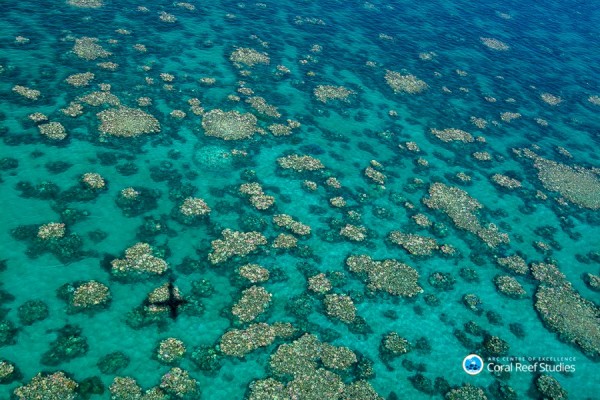By Ana Verayo, | April 10, 2017

The Great Barrier Reef is located in the northeastern coast of Australia and is also considered as a UNESCO World Heritage site. (Ed Roberts/ARC Coral Reef Studies)
After surveys, scientists have determined that last year's bleaching event was so damaging that two-thirds of the Great Barrier Reef might never recover.
The latest aerial surveys have revealed that the Great Barrier Reef in Australia may not fully recover since two-thirds of the reef has been greatly damaged due to severe coral bleaching in the past few years. Despite mass coral bleaching events that hit the Great Barrier Reef in the past, the last two events were recorded so close to each other that it caused the reef to suffer more than ever.
Like Us on Facebook
Due to massive changes in environmental conditions like a sudden spike in sea temperatures, corals react by expelling tiny algae that can make them turn white. Over the past two years, the Australian Research Council's Centre of Excellence for Coral Reef Studies has recorded and studied these events.
A survey last year revealed that the reef experienced the worst coral bleaching to date. However, a more recent study revealed that this damage was observed for 900 miles across the entire 1,400-mile reef. According to Australian Research Council's Terry Hughes, these back to back bleaching events left a major impact, and only a third of the reef is unscathed.
Weather patterns such as the El Nino and higher temperatures caused by global warming can ultimately result in coral bleaching. Last year's bleaching event was caused by El Nino. However, this year's bleaching event was caused by a very mild winter and summer heatwaves that originated from the eastern Australian coast.
The Great Barrier Reef is located on the northeastern coast of Australia and is also considered as a UNESCO World Heritage site. It is also one of the natural wonders of the world. Before these bleaching events, the last recorded severe bleaching events were in 1998 and 2002.
Bleached corals can recover when water temperatures return to normal, but this recovery process can take almost a decade. According to James Kerry, who led the aerial surveys at the Australian Research Council's Centre of Excellence for Coral Reef Studies, for full recovery of the corals, they will need at least a decade to heal, but mass bleaching events that are only 12 months apart means zero chance for reef recovery.
Hughes added that due to global warming, temperatures continue to rise and corals will experience more of these events. Even a single degree Celsius of warming has caused four bleaching events in the last 19 years.
-
Use of Coronavirus Pandemic Drones Raises Privacy Concerns: Drones Spread Fear, Local Officials Say

-
Coronavirus Hampers The Delivery Of Lockheed Martin F-35 Stealth Fighters For 2020

-
Instagram Speeds Up Plans to Add Account Memorialization Feature Due to COVID-19 Deaths

-
NASA: Perseverance Plans to Bring 'Mars Rock' to Earth in 2031

-
600 Dead And 3,000 In The Hospital as Iranians Believed Drinking High-Concentrations of Alcohol Can Cure The Coronavirus

-
600 Dead And 3,000 In The Hospital as Iranians Believed Drinking High-Concentrations of Alcohol Can Cure The Coronavirus

-
COVID-19: Doctors, Nurses Use Virtual Reality to Learn New Skills in Treating Coronavirus Patients







